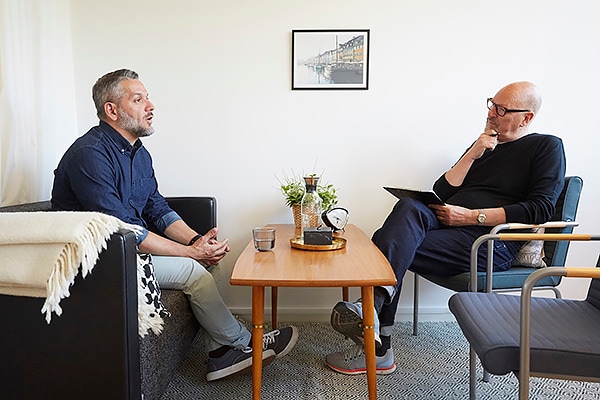Improving the LGBTQ+ Mental Health Experience: The University of Maryland Prevention Research Center’s Approach
People in the LGBTQ+ community face unique challenges when seeking health care.

Many people in the LGBTQ+ community experience high levels of chronic stress related to stigma and discrimination, which increases their risk for depression, anxiety, suicide, substance use, and other mental health struggles. In addition, LGBTQ+ people experience challenges when seeking health care services due to lack of clinician understanding, acceptance, and sensitivity. The University of Maryland Prevention Research Center (UMD-PRC) is taking a multi-level (i.e., organization and therapist) and multi-strategy (i.e., workshop, technical assistance, and clinical consultation) approach to help people in the LGBTQ+ community receive the tailored and affirmative mental health care services they deserve.
In the past year, 10 behavioral health organizations received virtual LGBTQ+ cultural competence training through the Sexual and Gender Diversity Learning Community (SGDLC), which includes a two-day (7 hour) training session with administrators and therapists, four 2-hour technical assistance (TA) sessions with administrators, and six 1-hour clinical consultation sessions with therapists. As an improvement to similar trainings, the SGDLC was designed to address both organizational and therapist-level change. Importantly, the SGDLC was designed with LGBTQ-focused and LGBTQ-identifying mental health providers, researchers, and community members.
UMD-PRC offered innovative technical assistance to behavioral health organizations.
At the organizational level, administrators attended the two-day training session and joined four 2-hour virtual technical assistance sessions for four months, which included developing a plan to improve their organization’s practices. During the sessions, administrators learned about the intersectional nature of stigmatized identities, the unique needs of LGBTQ+ people seeking care, and how to integrate affirming organizational practices into their work, such as more inclusive intake data forms, scheduling and reception, educational materials, signage, and employee hiring and training.
Administrators shared that the TA sessions were “an invaluable experience.”
UMD-PRC conducted focus groups with administrators that attended the TA sessions and received overwhelmingly positive feedback. Participants shared that:
- They now understand that affirming care means acknowledging and supporting diverse sexual and gender identities in their practice.
- They recognize that the culture and procedures of their practice can contribute positively or negatively to the lived experiences of their clients and are using organizational assessments to create more welcoming and inclusive environments.
- They are making changes in their practices by updating intake forms, changing how legal and adopted names are used in data systems, creating advocacy committees, and offering LGBTQ+ sensitivity training to all employees.
UMD-PRC is taking SGDLC statewide.

During the focus groups, many administrators requested additional resources to continue their education and showed interest in expanding the training to other parts of Maryland. UMD-PRC plans to offer the full SGDLC training program to behavioral health organizations across Maryland to continue to improve the LGBTQ+ mental health care experience.
The University of Maryland Prevention Research Center is one of 26 Prevention Research Centers (PRCs) supported by the Centers for Disease Control and Prevention (CDC) for the 2019–2024 funding cycle.